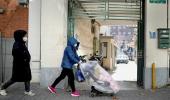'Viral infections rise in winter and better care needs to be taken in the next few months.'
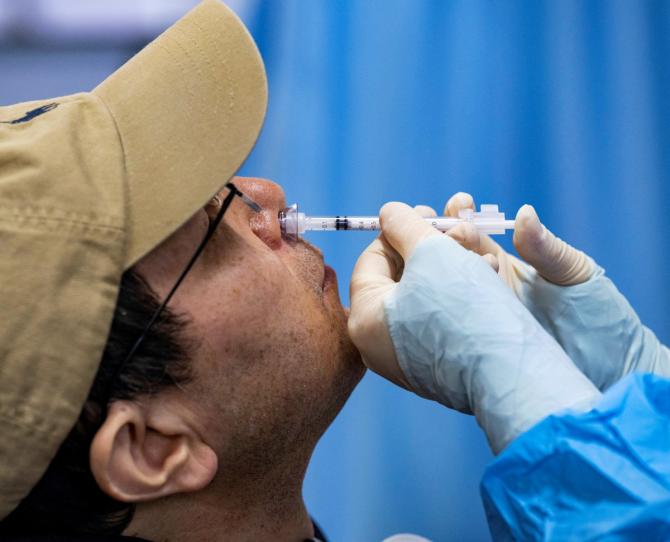
Dr Randeep Guleria, former director AIIMS, believes India needs to exercise caution given the alarming increase of COVID-19 cases in China.
Dr Guleria believes India needs to keep all its systems on alert as also to scale up our public health response to deal with new coronavirus variants.
"Proper surveillance is needed so that if cases rise anywhere we pick it up at the earliest," Dr Guleria tells Rediff.com Senior Contributor Rashme Sehgal.
How serious is the situation in China?
Whatever information is coming out of China suggests that the lifting of the zero Covid policy has seen a sudden surge in cases across the country. But we have no information about the exact number of people infected.
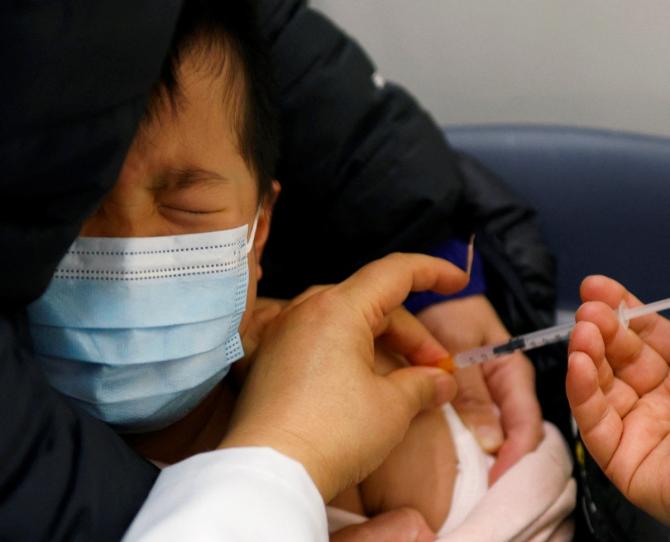
China was responsible for the spread of Covid across the world. Are we going to witness a repeat of the same situation?
The dominant virus strain in China is BF.7, a sub-variant of Omicron that has been identified as the main variant spreading in Beijing and is contributing to the wider surge of Covid infections in China.
This strain is more infectious and has more immune escape prospects (immune evasion) which mean it can cause Covid even if you have taken the vaccination and the booster shot.
Why was this variant allowed to go out of control in China because its ill effects can affect all of us?
We have received no systematic information from China about the situation there.
We, therefore, need to be cautious about our assessment of their situation.
What we do know is that because of their zero Covid policy, a large segment of their population has not had Covid.
Their vaccine intake has been low, especially amongst those above the age of 60 and the elderly above the age of 80, the majority of whom were not vaccinated at all.
There has been a serious question mark about the efficacy of Chinese vaccines.
There is serious doubt about the effectiveness of their vaccines (Sinovac and Sinopharm).
These have not been peer-reviewed and little scientific data about them is available.
These vaccines are not very effective, but the Chinese continue to vaccinate their people only with their own vaccines.
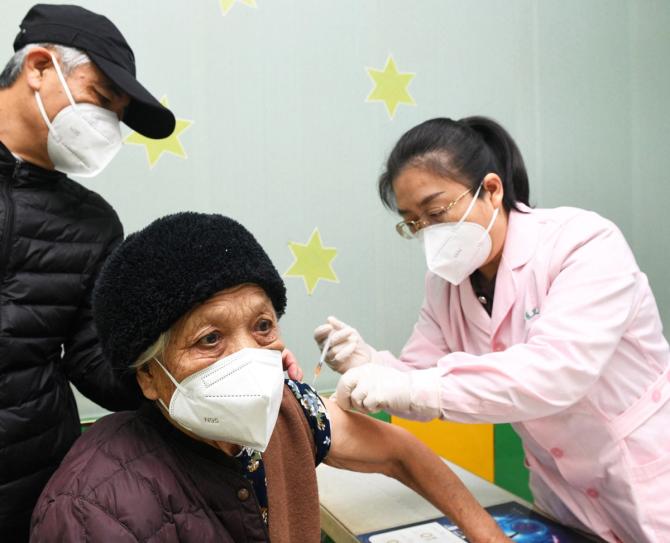
But Chinese vaccines have been approved by WHO whereas our Covaxin is still struggling to get approval.
We all know the politics (behind giving approvals) in WHO.
Chinese vaccines have been bought by some African and Middle Eastern countries. No data on their efficacy is available from these African nations.
Some Middle Eastern countries did buy these Chinese vaccines, but found they were less effective and so they switched to Pfizer.
Is the Chinese government playing with the lives of millions of its people by vaccinating them with a less effective vaccine?
As I have said earlier, a large segment of their population has been naive to the virus.
The zero infection policy did not allow their population to develop a natural immunity to Covid. Nor was it able to develop herd immunity.
This new wave of infections has come about just after it relaxed its restrictions.
This zero Covid policy does not work because the virus cannot be eliminated.
It is better to be vigilant and if required at all, go in for limited lockdowns. Complete lockdowns do not work.
But we in India also went in for a complete lockdown.
We did so at the initial stage of the disease when we did not know a great deal about the COVID-19 virus.
The virus has mutated many times over since the beginning of 2020 and the Omicron variants are known to evade the immune response from most vaccines currently in use.
This is the reason why many companies have come up with bivalent vaccines to provide better protection. But these vaccines cannot stop transmission.
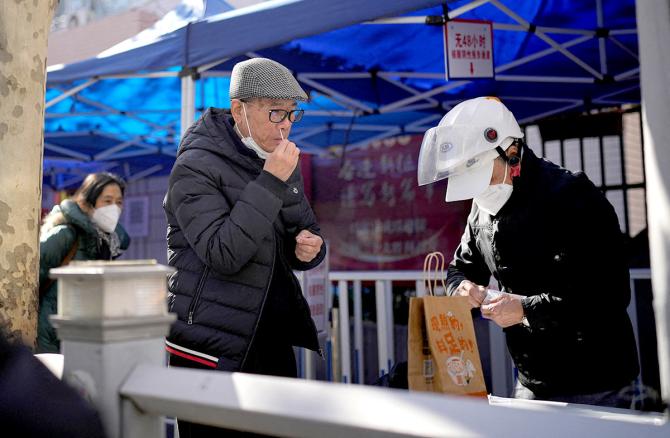
What should we in India do?
India has reported cases of BA.7 cases in October. but it has not resulted in a surge in our population.
No deaths have been reported from these cases either.
We have followed a good vaccination policy and that has helped provide some immunity.
The virus will keep evolving. We need to increase our genome sequencing to pick up new variants because new variations can evolve all the time.
Amongst these new variations, there are variations of interest and variations of concerns.
Omicron has many sub-lineages. It is the variations of concern that are causing hospitalisations and death.
Several Western epidemiologists have warned that deaths in China can go up to two million if not more.
The virus was locked within a closed society and has got a sudden release in an extremely susceptible society.
What should be a matter of special concern for us in India?
India has not seen cases rising anywhere. But we need to be vigilant.
Proper surveillance is needed so that if cases rise anywhere we pick it up at the earliest.
Therefore, testing must be conducted all the time to ensure whatever variant comes up is prevented from spreading further.
Viral infections rise in winter and better care needs to be taken in the next few months.
It is important for people, especially high-risk groups, to protect themselves and take the Covid booster dose.
We need to follow all Covid protocols though for present India is safe.
I must add that our situation is much better compared to that of China because our vaccination strategy has been very successful and most of the people in the high-risk group have taken booster shots.
Feature Presentation: Rajesh Alva/Rediff.com




